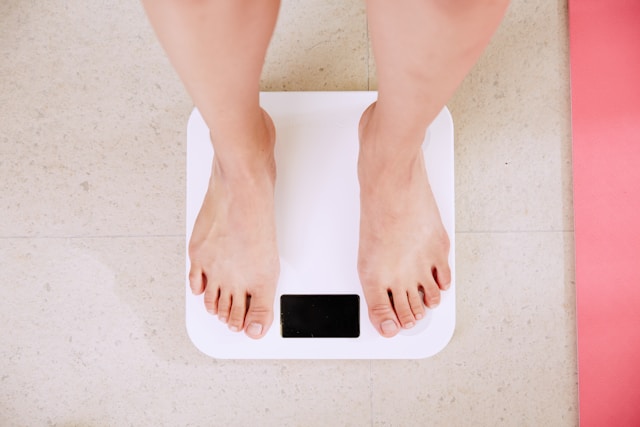If you’re wondering the best time to work out for weight loss, you’re not alone. Should you train at sunrise for better fat burn, or save your sweat for sunset when your body feels strongest? In this guide, you’ll learn what the research suggests about morning vs evening workouts, how circadian rhythms affect performance and fat loss, and how to choose the best time to exercise for weight loss based on your schedule, sleep, and consistency. We’ll end with ready-to-use weekly templates and a quick decision guide so you can start today.
Morning vs Evening: What Actually Changes?
Your body runs on a 24-hour clock (your circadian rhythm) that shifts hormones, body temperature, alertness, and energy through the day. These changes influence how workouts feel—and sometimes how they impact fat loss.
- Morning advantages (especially fasted): Higher baseline cortisol and lower insulin can support fat oxidation during steady cardio. Fewer distractions = higher consistency.
- Evening advantages: Body temperature, flexibility, and reaction time peak later in the day, which often means better performance for strength and HIIT. Better performance can mean more total calorie burn and muscle preservation.
Bottom line: The best time to work out for weight loss is when you can consistently train hard, recover well, and protect your sleep. For some, that’s sunrise; for others, it’s after work.

The Case for Morning Workouts 🌅
Great for: beginners, busy parents, shift-free professionals, consistency-seekers
Why mornings can help weight loss:
- Fewer interruptions: You’re less likely to skip when it’s done before the day derails.
- Habit loop is simpler: Wake → move → shower → breakfast.
- Potential fat oxidation boost: Especially with light or fasted cardio (not required, but it’s an option).
- Positive momentum: Early wins influence better food decisions throughout the day.
Morning workout playbook:
- Fasted Zone-2 cardio (20–40 min): Low–moderate intensity walking, cycling, or elliptical.
- Strength (3–4x/week): Eat a small protein-rich snack if lifting heavy.
- Protein-rich breakfast: 25–35g protein within 1–2 hours post-workout supports recovery and appetite control.
Long-tail keyword examples used naturally:
- best morning workout for weight loss at home
- fasted morning cardio for fat loss
- morning vs evening workout which is better for weight loss

The Case for Evening Workouts 🌇
Great for: strength lovers, late chronotypes, people with long commutes, students
Why evenings can help weight loss:
- Higher performance: Warm muscles and higher core temp often mean heavier lifts and faster intervals.
- Stress relief: Exercise can reduce the urge to stress-eat at night.
- Community & coaching: Group classes and coaching sessions are more available after work.
Evening workout playbook:
- Strength + short finisher: 40–60 min lifting plus 5–10 min intervals or finishers.
- Carb-smart dinner: Protein + fiber + smart carbs; avoid huge, high-fat meals right before bed.
- Sleep buffer: Aim to finish at least 2–3 hours before bedtime to avoid elevated heart rate disrupting sleep.
Long-tail keyword examples used naturally:
- best evening workout routine for fat loss
- is it better to work out in the evening for weight loss
- night workouts and weight loss results
Which Burns More Fat: Morning or Evening?
Let’s keep it simple: calorie deficit + consistency drive fat loss. Timing can optimize performance, appetite, and adherence—which indirectly affects results.
- Morning cardio may show higher fat usage during the session, particularly if fasted, but total daily fat loss depends on overall calorie balance.
- Evening strength/HIIT can push higher intensity and volume, preserving or building lean mass. More muscle = higher resting metabolic rate over time.
The best time to work out for weight loss is the time that gives you steady training volume, strong recovery, and solid sleep—week after week.

Pick Your Lane: Quick Decision Guide
- I struggle to be consistent: Choose morning.
- I love lifting heavy or HIIT: Choose evening (not too close to bedtime).
- I snack at night: Train late afternoon and follow with a high-protein dinner.
- My sleep is fragile: Train morning or early afternoon.
- I can only train at lunch: Great—consistency beats everything.
2 Ready-Made Weekly Templates (Copy & Use)
A) Morning-Focused Fat-Loss Plan (4–5 days/week)
- Mon: 30–40 min Zone-2 cardio (fasted optional)
- Tue: Full-body strength (45–55 min)
- Thu: Full-body strength (45–55 min)
- Sat: Intervals (10 x 1-min hard / 1-min easy) + core (10 min)
- Optional: Wed easy walk 30 min or mobility
Nutrition note: Protein target ~1.6–2.2 g/kg/day; fiber 25–35 g/day; keep a 200–400 kcal daily deficit.
B) Evening-Focused Fat-Loss Plan (4–5 days/week)
- Mon: Full-body strength (compound lifts)
- Wed: 30–40 min tempo cardio or spin class
- Fri: Full-body strength + short finisher (5–8 min)
- Sun: Long easy walk/hike (45–60+ min)
- Optional: Tue mobility or yoga (20–30 min)
Sleep note: Finish training ≥2–3 hours before bed; keep dinner balanced (protein + veggies + smart carbs).
Strength vs Cardio Timing: What to Do When
- If you do both in one session: Lift first, then short cardio. Strength quality drives metabolic benefits.
- If you split morning/evening: Put strength at your strongest time of day; place cardio in the other slot.
- Weekend strategy: Use weekends for your longest, most enjoyable sessions to build adherence.
Meal Timing That Helps (Without Overthinking)
- Morning lifters: Light pre-workout snack (banana + Greek yogurt) or fasted if it suits you. Eat a protein-rich breakfast after.
- Evening lifters: Eat a carb-inclusive lunch for fuel; have a protein-centric dinner post-workout.
- Hydration matters: 2–3 liters/day; add electrolytes if you sweat a lot.
Motivation & Consistency: The Real Fat-Loss Lever
No timing trick beats showing up. Make it frictionless:
- Lay out clothes the night before.
- Put sessions in your calendar with reminders.
- Use a habit pair: coffee → 20-min walk, or commute → gym.
- Track 3 numbers only: sessions done, steps, protein grams.
When life gets hectic, shorten, don’t skip: 10–20 min micro-workouts maintain momentum and keep the habit alive.
FAQs: Best Time to Work Out for Weight Loss
Is morning the best time to work out for weight loss?
Morning can be great for consistency and sometimes fat oxidation during cardio, especially if fasted. But if mornings make you under-perform or skip, your evening workout will deliver better results.
Do evening workouts still help me lose weight?
Absolutely. Evenings often deliver stronger performance, allowing heavier lifts or more intense intervals—both support greater total calorie burn and muscle retention, which are crucial for fat loss.
Should I do cardio or strength first for weight loss?
If in one session, do strength first to protect training quality, then add a short cardio finisher. If you split your day, place the harder session where you feel best (morning or evening).
Is fasted cardio required for fat loss?
No. It can increase fat usage during the workout, but total fat loss depends on overall calorie intake and consistency. Many people perform better (and stick with it longer) when fed.
How many workouts per week are best for weight loss?
Aim for 3–5 sessions/week: at least 2–3 strength days and 1–2 cardio days, plus daily steps (6–10k) as your “always on” fat-loss tool.
The Final Word
The best time to work out for weight loss is the time you’ll actually do—consistently, with enough effort, while protecting sleep and recovery. If you’re a creature of routine or want minimal distractions, choose mornings. If you love to push big weights or thrive later in the day, choose evenings. Use the templates above, adjust for your life, and track just three things: sessions, steps, proteins. Your results will follow. 💪
#WeightLoss #MorningWorkout #EveningWorkout #FatLoss #HIIT #StrengthTraining #FitnessTips #Cardio #HealthyHabits #CircadianRhythm
With care,
Hassan Tariq
Founder of IdeasBlooming

